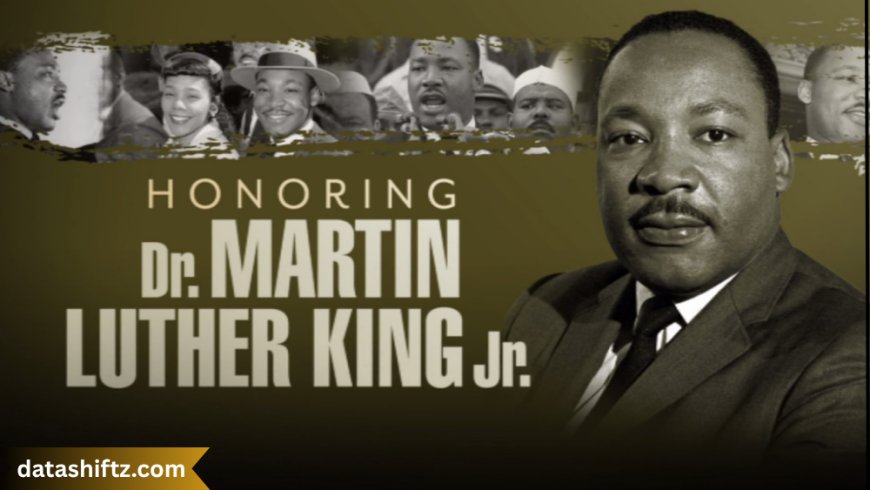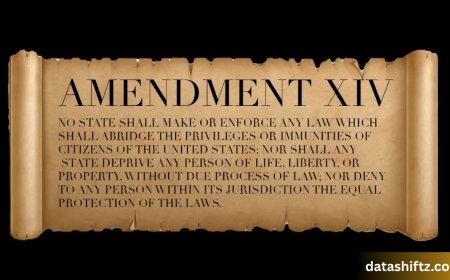MLK Files: Unveiling the Legacy, Controversy, and Hidden Records of Martin Luther King Jr.

Introduction:
The Enduring Legacy of MLK and the Mystery Behind the Files
Dr. Martin Luther King Jr., the iconic civil rights leader, is remembered globally for his powerful leadership during the American civil rights movement. His voice echoed against injustice, inequality, and racism, culminating in his historic “I Have a Dream” speech and leading to the passage of pivotal legislation like the Civil Rights Act of 1964 and the Voting Rights Act of 1965.
Yet beyond the celebrated speeches and peaceful marches lies a deeper, lesser-known narrative—one intertwined with government surveillance, sealed records, and long-standing controversy. These documents, widely referred to as the MLK files, contain thousands of pages of government surveillance reports, wiretaps, and memos primarily compiled by the FBI during J. Edgar Hoover’s tenure.
As we explore the "MLK Files," we journey through the intersections of civil liberties, national security, and historical truth—raising important questions about privacy, legacy, and justice in the modern era.
The Origins and Nature of the MLK Files
The MLK files refer to a vast archive of documents collected by the Federal Bureau of Investigation (FBI) through surveillance operations that began in the 1950s and intensified throughout the 1960s. Much of this information was obtained through wiretaps, informants, and secret monitoring programs initiated under the suspicion that King had Communist ties.
Why Was Martin Luther King Jr. Targeted by the FBI?
| Reason for Surveillance | Explanation |
|---|---|
| Alleged Communist Associations | King was falsely suspected of having ties to communist figures |
| Influence and Rising Popularity | Hoover believed King’s influence threatened “national security” |
| Political Disruption | The civil rights movement challenged entrenched power structures |
| Personal Life Investigations | FBI aimed to discredit King by uncovering alleged moral shortcomings |
Key Components of the MLK Files
The MLK files include a mix of surveillance transcripts, audio recordings, internal memos, and political correspondence. Many of these were made public through the Freedom of Information Act (FOIA), while others remain sealed until 2027, per a court order.
Classification of MLK File Categories
| Category | Description |
|---|---|
| Surveillance Transcripts | Wiretapped phone calls, hotel room recordings |
| FBI Internal Memos | Communications between agents and Hoover |
| Psychological Profiles | FBI attempts to profile King’s mental and behavioral patterns |
| Blackmail Attempts | Anonymous letters pressuring King to resign from public life |
| Public Disinformation | Press leaks and rumors aimed at tarnishing King’s reputation |
The 1964 FBI Letter: An Infamous Attempt at Intimidation
One of the most damning revelations within the MLK files is the “suicide letter” sent anonymously by the FBI to Dr. King in 1964, shortly before he was to receive the Nobel Peace Prize. The letter, now public, attempted to coerce King into stepping down from leadership and hinted at suicide.
This chilling letter was part of a broader FBI program called COINTELPRO (Counter Intelligence Program), aimed at monitoring and neutralizing civil rights leaders, activists, and dissenters.
MLK Files and COINTELPRO: A Dark Chapter in U.S. History
Overview of COINTELPRO
| Target Groups | Objectives of Program |
|---|---|
| Civil Rights Leaders | Undermine leadership and sow division |
| Anti-Vietnam War Activists | Disrupt protest movements |
| Black Power Movements | Monitor and dismantle radical factions |
| Communist Sympathizers | Identify and neutralize “subversive” activities |
Public Access and the Push for Full Disclosure
While portions of the MLK files have been released under public pressure and FOIA requests, thousands of documents remain sealed at the National Archives and are slated for release in 2027. Historians, activists, and civil rights organizations have urged for early disclosure to bring transparency and allow for a fuller understanding of King’s life and the government's actions.
Arguments For and Against Early Disclosure
| Arguments in Favor | Arguments Against |
|---|---|
| Public has the right to know | Sensitive personal details may be revealed |
| Could clarify historical inaccuracies | Risk of damaging King’s legacy |
| Lessons for future civil liberties | Possible political manipulation |
Top 10 Revelations from the MLK Files (Released So Far)
-
FBI wiretapped King's hotel rooms and homes without court approval
-
Hoover called King the “most dangerous Negro in America”
-
The FBI tried to derail King’s Nobel Peace Prize nomination
-
Internal FBI memos celebrated the potential downfall of King’s credibility
-
Surveillance intensified as King opposed the Vietnam War
-
Agents tracked King’s travel, meetings, and phone calls extensively
-
The FBI leaked false stories to media outlets to discredit King
-
Anonymous threats and blackmail attempts were common
-
The FBI used informants embedded within the Southern Christian Leadership Conference (SCLC)
-
Several U.S. presidents were aware of or complicit in the surveillance
Impact on King’s Legacy: A Re-evaluation?
Despite the troubling content of the MLK files, historians widely agree that King’s legacy remains intact. His moral courage, nonviolent philosophy, and transformative leadership far outweigh the attempts to smear him.
However, the revelations do complicate the public's perception of U.S. institutions. The MLK files raise broader ethical questions:
-
Should government agencies have unchecked surveillance powers?
-
How does state surveillance intersect with civil rights?
-
Can private flaws of public figures alter the value of their work?
MLK's Family and Scholar Reactions
Family Responses:
King’s children, particularly Martin Luther King III and Bernice King, have expressed deep concern over the files. They have condemned the FBI’s actions as unjust and have supported calls for full transparency.
Academic and Public Commentary:
| Scholar/Institution | Viewpoint |
|---|---|
| Dr. Cornel West | Called the files “a spiritual assassination attempt” |
| Harvard University Historians | Urged for full release to allow objective study |
| American Civil Liberties Union | Advocated for reform of federal surveillance laws |
Cultural Representations and Media Coverage
The MLK files have also appeared in documentaries, films, and books, helping educate the public on this underreported issue.
Notable Documentaries and Films:
-
MLK/FBI (2020) – Directed by Sam Pollard, explores the extent of surveillance
-
Selma (2014) – Briefly touches on FBI monitoring of King
-
Eyes on the Prize – PBS series documenting civil rights history
Ongoing Relevance: Surveillance and Civil Rights Today
The MLK files are not just a matter of historical curiosity—they remain highly relevant in the digital age. Modern surveillance capabilities have vastly expanded, raising alarms about civil liberties, racial profiling, and governmental oversight.
Then vs. Now – Surveillance and Civil Rights
| Era | Method of Surveillance | Target Communities |
|---|---|---|
| 1960s (COINTELPRO) | Wiretaps, informants, secret files | Black leaders, activists |
| Today | Internet metadata, phone tracking | Journalists, minorities, political groups |
Conclusion:
The MLK Files and the Pursuit of Truth
The MLK files stand as both a cautionary tale and a historical reckoning. They expose the dark underbelly of American institutions while underscoring the resilience and enduring impact of one man’s moral clarity and courage.
As we await the full release of these documents in 2027, it is imperative to reflect on the implications of surveillance, power, and the lengths to which some institutions will go to preserve the status quo. Dr. Martin Luther King Jr.’s life was one of extraordinary vision, and while the MLK files may complicate his story, they cannot diminish his profound contributions to humanity.
His dream—of justice, equality, and peace—continues to live on. But to honor that dream fully, we must not shy away from confronting uncomfortable truths.




























